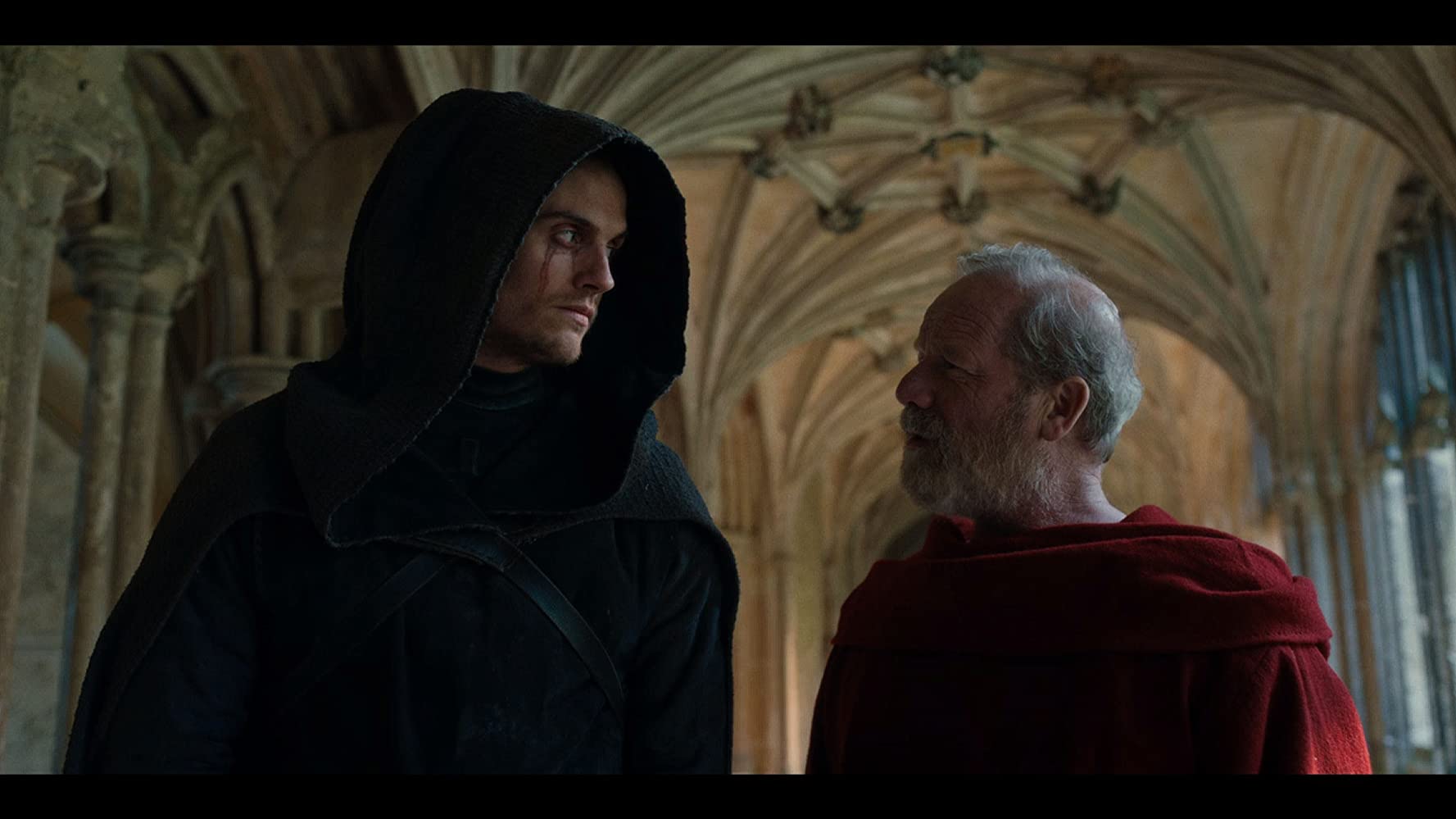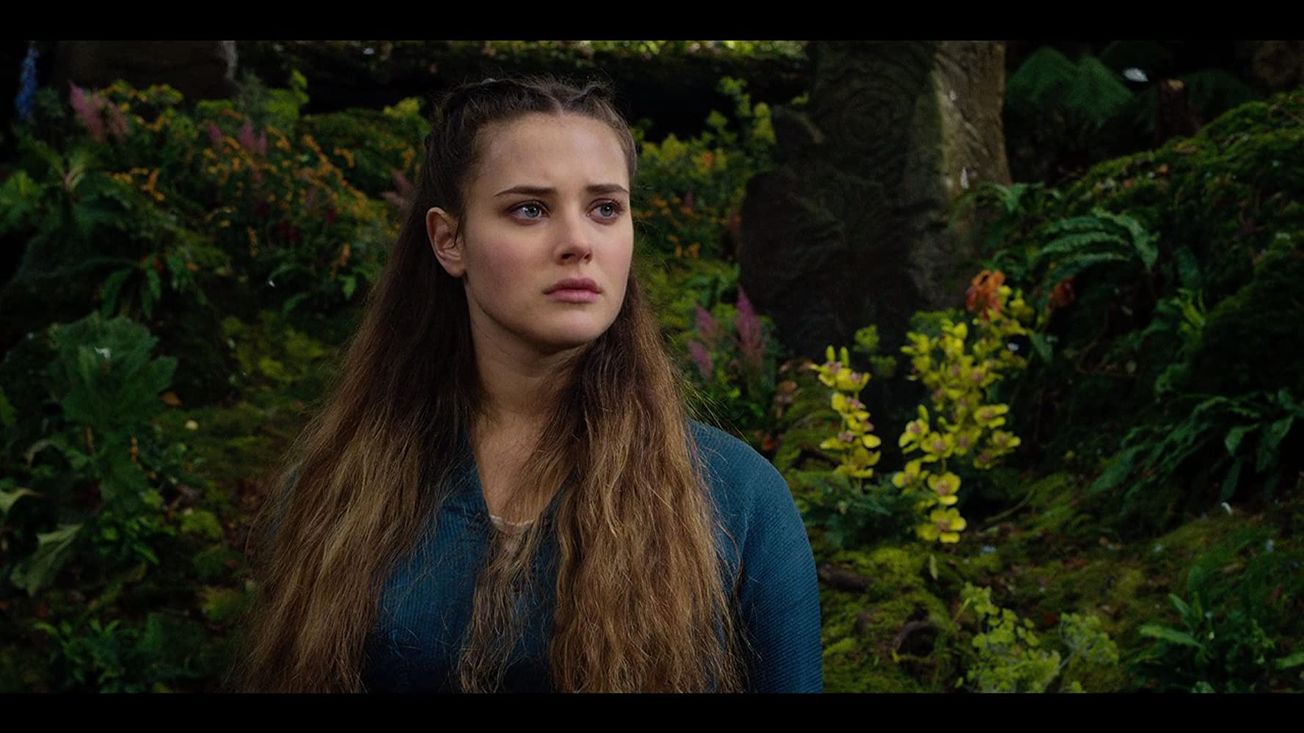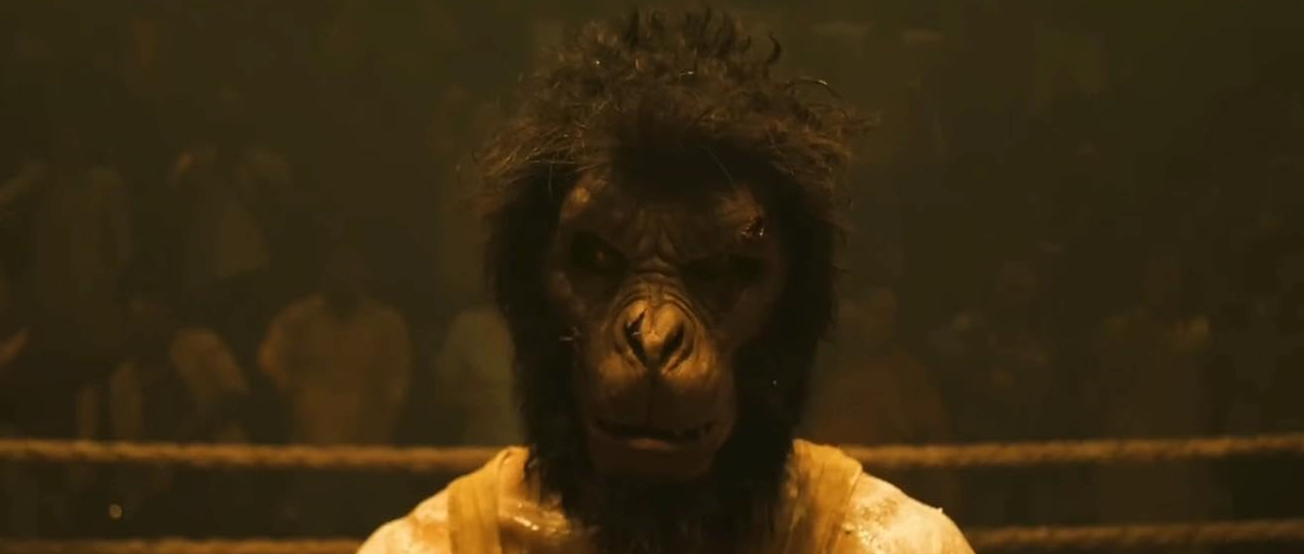By Maddy Raven, Film & TV Editor
If you intend to watch Cursed (2020), I recommend that you lower your expectations. The show is good fun – Netflix have been enjoying themselves in splurging large budgets on CGI and epic sword battles, but the quality of the writing has suffered as a result of searching for our next high fantasy fix, now Game of Thrones (2011-2019) is gone. Transitions between scenes are interesting, using animated shadow-puppetry, reminiscent of Jan Pienkowski’s Meg and Mop. That’s probably the only thing I like. Everything looks pretty, and leading lady Katherine Langford plays a very fetching Nimue, but aesthetic alone doesn’t save this show from being a nightmare in terms of writing.

This current trend has reached a point, now, where it doesn’t seem like the writers even know what kind of mythology they’re trying to build, but rather, they’re throwing as many different characteristics of various folklore and fairy tales as they can into a pot of ideas, to see who comes out looking the most fantastical. For example: our protagonist is Nimue. The daughter of Lenore, the High Priestess of the Sky People; everyone seems to call Nimue a witch, or a demon. And of course, no one but a quirky ginger sidekick seems to like her, and we quickly kill the ginger off in order to further Nimue’s feeling of isolation. With increasing intensity, the Sky People are also referred to as fey. But, if these “Sky People” are fey, what’s the difference between them, humans, and the other fairy like creatures we see in the first episode?
And why is Nimue so surprised when ‘The Hidden’, a pantheon prayed to by the Sky People, choose her as Summoner? What is a Summoner? And, seriously, why are we so surprised? She’s the protagonist, after all. Do the show runners actually know what level of mysticism they’re going for here? Probably not. Cursed has no idea what it’s doing.
I’d also like to make the point that the path to proportional female representation is not shoehorning women into stories which are typically male-centric. It’s distracting, and encourages a constant debate about whether or not the women deserve to be there, which is tiring and frankly, a waste of time.

It’s starting to feel a little bit lazy that in order to feel represented, we have to constantly churn out unimaginative, half-baked revisionist myths and legends. There is an upcoming Netflix series starring Millie Bobby Brown as Sherlock Holmes’ little sister, which both makes me want to put my head through a wall and proves this point. We need original content. There’s plenty of it out there.
Circling back, what the hell is a ‘fey’? At one point, this apparently scary Weeping Monk (he could be a member of Black Veil Brides with that ridiculous eye make-up) identifies Niue’s tracks as ‘a fey female’, so I’d really love to know how their footprints are different, when they look like every other human in this ridiculous show.

Further contributing to the shoddy and confusing storytelling, when a character knows something forbidden, usually related to the fey, that they shouldn’t know, they say it out loud and everyone becomes really impressed by how mysterious they are. Apart from me. I’m still very confused, and this is just making it worse.
Arthur apparently runs off with Nimue’s highly important sword (up until now he’s been very sweet and sensitive and even a little flirty with Nimue), and tries to join a tournament. I probably would’ve been invested in an example of a young character doing something selfish and messing up and ultimately finding redemption, but by this point, I really don’t have the energy to care what he’s doing.
Basically, any investment I’m supposed to have in these characters has been lost under a mountain of questions which the writers themselves probably couldn’t even answer. Cursed is mindless fun, but I feel like I’m missing at least two or three episodes of prior exposition – it is exposition which has likely been cut out in an attempt to seem mysterious, but it is an attempt that ultimately fails.
Featured: IMDb / Netflix, Inc.
Have you seen Cursed yet? What did you think?








